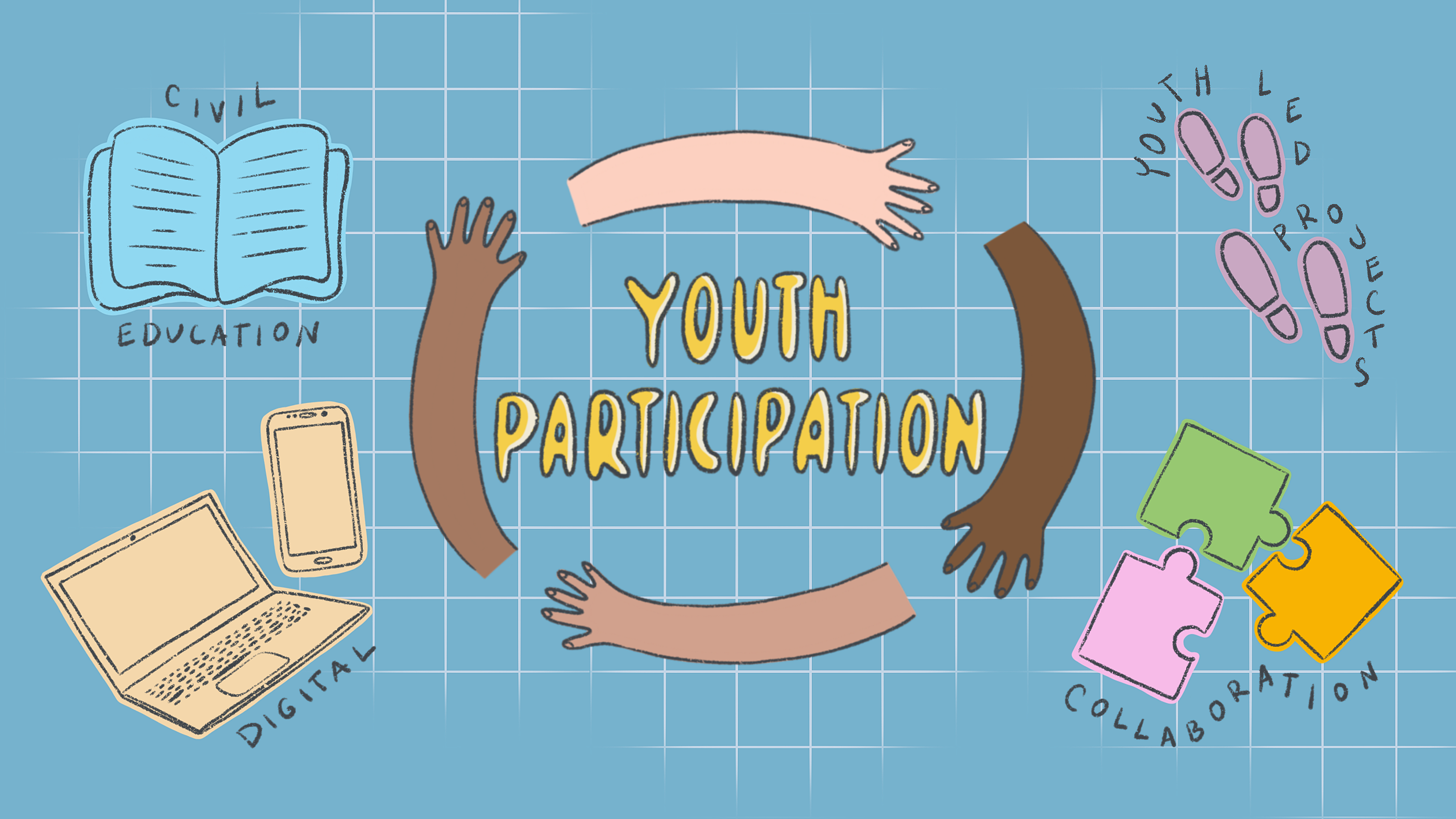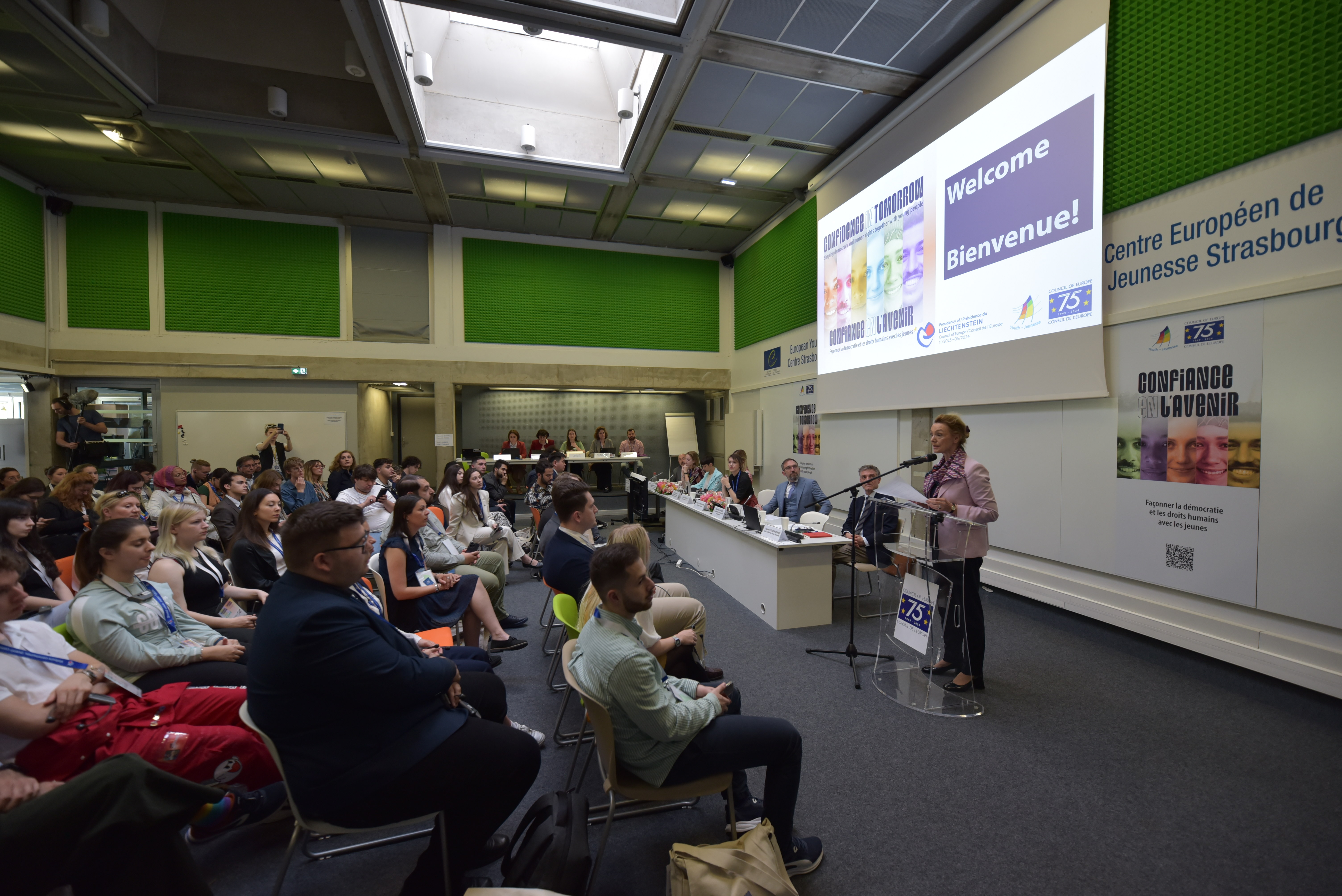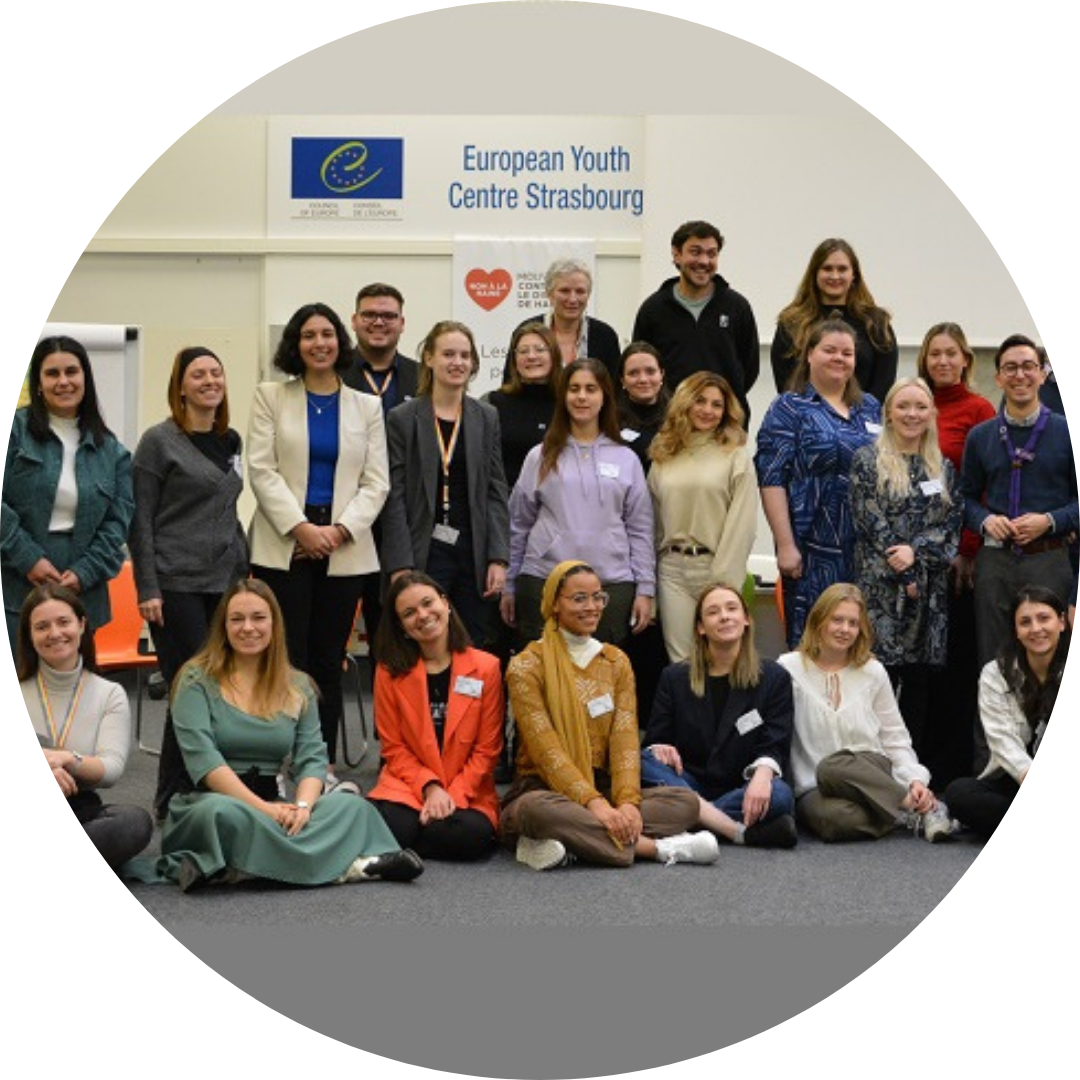
Illustration by Daniela Nunes
Youth participation at the Council of Europe: current challenges, key activities, and future strategies
by the Advisory Council on Youth
Youth participation is a cornerstone of modern democratic societies, ensuring that young voices are heard and valued in decision making. At the Council of Europe, youth representatives recognise the pivotal role of young people in shaping our future and are committed to empowering them to engage actively in democratic life. This article explores the barriers young people face in engaging with politics and highlights how the Council of Europe is turning the tide, ensuring young voices are both heard and valued.
The disconnect: why young people are left out
One of the primary challenges to youth participation in democratic processes is the disconnect and feeling of disillusionment with traditional political structures. Many young people perceive these systems as inaccessible and unresponsive to their needs and concerns. Additionally, socio-economic barriers, lack of education on civil rights and limited opportunities for meaningful engagement further hinder youth participation. Furthermore, there has been a shift in the definition of political participation in the last decades, including the evolving role of young people.
To address these issues, the Council of Europe’s Youth Department has implemented several strategies over its 50-year history. The approach includes creating inclusive and accessible platforms by enhancing digital engagement tools, such as the Enter! project, which uses technological platforms to engage young people in conversations about social rights and democratic participation. Civil education is also promoted through initiatives like the Charter on Education for Democratic Citizenship and Human Rights Education, which educates young people on their civil rights and responsibilities.
Another key strategy is supporting youth-led initiatives. The Youth Department funds and supports projects led by young people through the European Youth Foundation, providing grants to youth organisations working on democracy and human rights.
Fostering partnerships with youth organisations is crucial. By working closely with the European Youth Forum, the Council of Europe ensures that the perspectives of young people are included in the policy-making process. For example, “soft law” recommendations often originate in the Joint Council on Youth (CMJ), where youth representatives and government officials collaborate. Budgetary responsibilities are also assigned to the Programming Committee (PC) members, ensuring that resources are allocated to projects that genuinely reflect the needs and aspirations of young people.
Furthermore, the Youth Department is committed to diversifying the applicant pool for the European Youth Centres (EYCB and EYCS). This involves not only engaging with established youth organisations but also reaching out to new groups and participants who have traditionally been underrepresented. This effort aims to create multipliers who can spread democratic values and practices on a broader scale.
By implementing these strategies, the Council of Europe Youth Department aims to build a more inclusive and responsive political landscape. The focus is on actively involving youth in dialogue and decision-making processes, ensuring that their voices are heard and their contributions are valued.
Innovative solutions: the Council of Europe steps up
Over the past 75 years, the Council of Europe has developed innovative strategies to engage youth meaningfully. Some of the key activities include:
-
75th anniversary celebration: This event highlights young people’s contributions to the Council of Europe’s achievements, providing a platform for youth to share their stories and visions for the future, fostering a sense of ownership and involvement in our collective history.
-
Confidence in Tomorrow: This high-profile youth event in 2024, which was hosted in an institutional setting, focused on building resilience and confidence among young people by finding ways to overcome obstacles that hinder their full participation in democratic processes. Through workshops and open dialogue, facilitated by prominent figures and experts, youth were equipped with the tools and confidence to actively engage in democratic life.
-
Human Rights, Camera, Action! Photo and video competition: This competition encourages young people to express their perspectives on human rights through photography. By engaging in creative expression, youth can raise awareness about human rights issues and inspire action within their communities.
-
-
World Forum for Democracy: This is a unique platform where youth leaders, policy makers and experts tackle pressing democratic issues. In 2024, its 12th annual gathering focused on disinformation and divisive narratives in politics, exploring how diversity is represented in public life, especially during election campaigns.

Image: Former Council of Europe Secretary General Marija Pejčinović Burić in "Confidence in Tomorrow" event.
Future strategies
Looking ahead, the Council of Europe is committed to enhancing youth engagement and participation through several strategic initiatives:
- Strengthening digital participation: In an increasingly digital world, the aim is to leverage technology to create more interactive and engaging platforms for youth participation. This includes developing online forums, virtual events and digital tools that facilitate real-time dialogue and collaboration.
- Expanding civil education: The plan is to expand civil education programmes to reach more young people, particularly those from marginalised communities. By providing comprehensive education on civil rights and responsibilities, youth can be empowered to become active and informed participants in democratic processes.
- Supporting youth-led projects: Continued support will be given to youth-led projects and initiatives that address critical issues such as climate change, social justice and inclusion. By providing funding, resources and mentorship, for example through the European Youth Foundation, the impact of youth-led efforts can be amplified, fostering a culture of innovation and leadership.
- Enhancing collaboration with youth organisations: Strengthening partnerships with youth organisations is essential for ensuring that youth perspectives are integrated into policies and programmes. This focus was reaffirmed at the Council of Europe’s 2024 Summit of Heads of State and Government – the fourth such summit in 75 years – where youth engagement was elevated as a key priority. The Reykjavik Declaration, adopted during the summit, explicitly calls for meaningful youth participation, increased co-operation with civil society and the integration of youth perspectives in shaping policies, particularly in areas like the environment and democratic governance. Close collaboration with youth organisations will not only help to co-create solutions but also ensure that youth influence decision making at all levels.
The Council of Europe is dedicated to overcoming the challenges to youth participation and creating a more inclusive and participatory democratic environment. Through ongoing initiatives and future strategies, the goal is to empower young people to shape their societies and actively drive positive change. Youth participation is not just a goal; it is a fundamental principle that underpins the strength and resilience of democratic institutions.

The Advisory Council on Youth (CCJ) represents youth NGOs in Europe and plays a key role in shaping the Council of Europe’s youth priorities and policies.


